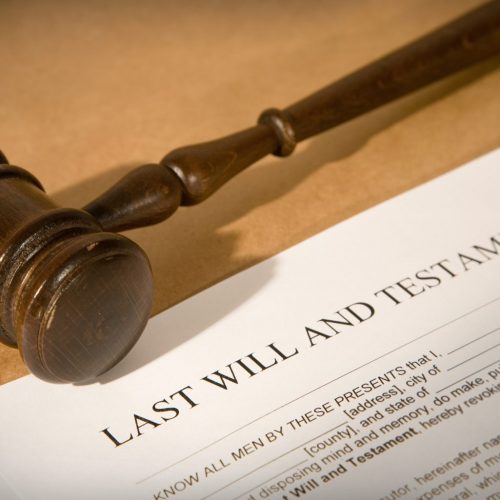The Complete Guide on What to Include in a Will
No matter the size of your estate, it’s important to have a will. More often than not, there are things that every one of us would like to ensure get taken care of in our absence. Whether it’s children, pets, property, or money, ensuring that everything has a place is going to make it easier on your loved ones once you’re gone.
But what’s included? Where can you turn for help when it’s needed? Are there guidelines you can follow?
We’re here to help. Read on to learn what to include in a will.
Personal Assets
When it comes to wills, personal assets are defined as anything you own that isn’t considered “real property.” This can be anything from a car to clothing, or jewelry, furniture, or cash.
When you’re creating your will, you have to make sure your personal assets are specific. If they’re not, you leave space for your executor to be confused and have trouble determining your wishes.
This leads to the next thing you should have in your will.
Executor
An executor is a person you assign to carry out your last will and testament. This person is going to be responsible for paying off debts or taxes you may owe and then divvying up your estate.
The better the state your affairs are left in, the easier it’s going to be for your executor to carry out your wishes.
Real Property
The next thing that should be included in your will is real property. Real property is anything that falls under land, homes, physical buildings, and even mineral interests.
It’s a bit more complicated to divvy these assets out, but it’s still possible. Hiring a lawyer can be helpful in these cases.
Guardianship
After property, the next thing to consider is guardianship. If you have children or pets, they’re typically going to go to your spouse or next of kin unless you specify otherwise.
If you find that your spouse or next of kin wouldn’t be up for the task, it’s best to send them to someone who could better care for them in your absence. You want to make sure the person you’re choosing for this task knows ahead of time and has given you their approval before making the decision.
Whether or not the pet or child has expensive needs, you can leave money behind to care for them.
If you’re hesitant about letting someone know they’d be the one caring for your pet, it’s important to think about the fact that they might give them up if they think they can’t handle it. As for your child, you want to make sure they’re left with the proper care they would need.
Cancel Any Debts Others Owe You
If you’d like the debts that others owe you to be considered water under the bridge, then you’re going to have to state that in your will. It’s easy to think that your death would rid anyone of these debts, but that isn’t always the case.
In most cases, that debt is simply going to be passed to those who inherited your estate.
Instructions on How to Manage Property
One other thing to include in your will is instructions on how to care for any of your property. This may be particularly helpful to anyone you’re leaving property to.
If there are specific companies that can or do care for your home, then leaving a list of those could prove helpful. Think cleaning services, landscapers, pool cleaners, pest inspectors, and other things of that nature.
If you have plants or other living things, then it could be smart to include how often you water them, what type of fertilizer you use, and how often, or other specific care you perform for the plant.
You can also specify you want your assets sold, and then how you’d like the proceeds distributed.
Things to Not Place on Your Will
While there are plenty of things that are smart to include in your will, there are also things that don’t belong there.
Property in a living trust is one of these things. If you have a living will set up, then the property is going to automatically go to the beneficiary you’ve designated in your living trust and is managed by the state.
Life insurance proceeds fall under the same rule. Those are automatically going to fall to either the beneficiary, your partner, or your minor children. Retirement plan proceeds, like money from a pension, IRA, or 401(K) also should not be included in your will as they contain a section for you to set a beneficiary.
Plans For Your Funeral
More often than not, the settling of your estate won’t happen until after the funeral, so, likely, nobody will even notice that you’ve included your funeral wishes until after the fact.
Instead of leaving any wishes in your will, simply talk to your loved ones about what you’d like. You can also create a separate document outlining any wishes for your funeral. You can give this document to the executor of your estate.
You Know What to Include in a Will… Now What?
Now that you know what to include in a will, it’s time to take the next steps in preparing yours. If the process is confusing for you, or you have a complicated estate, it may be best to turn to a professional for help.
When you hire a lawyer to guide you through the process, you ensure that everything is taken care of and that nothing is done improperly.
De Bruin Law Firm can help with your estate planning. Contact us to get started today.








Leave a Reply
Want to join the discussion?Feel free to contribute!